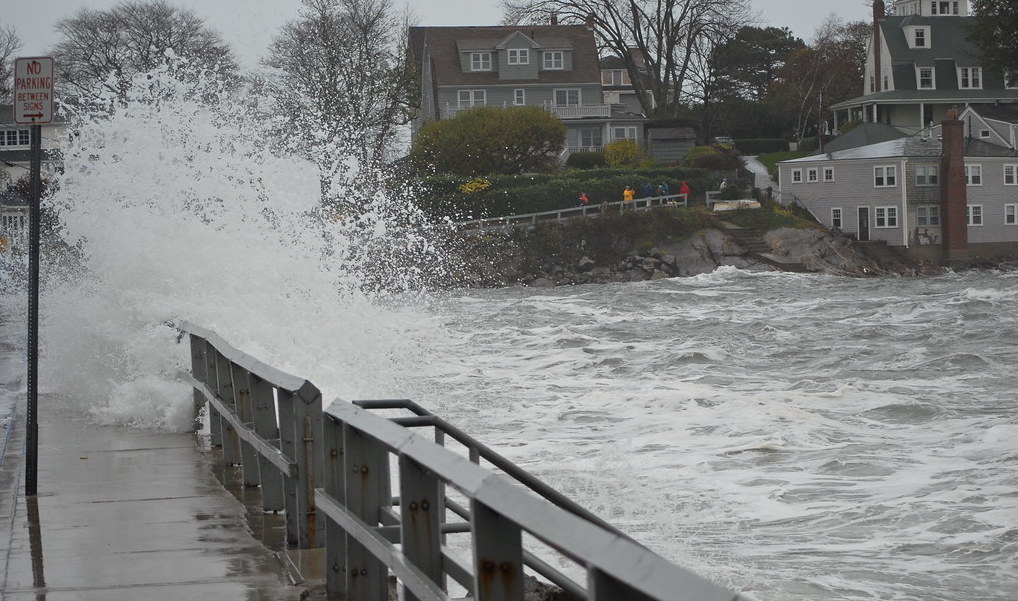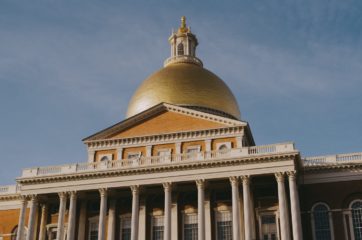Despite only being a bill for about two months, GreenWorks (H.3987) is rapidly moving through Massachusetts’ legislative process. We break down the changes made to GreenWorks since its first filing in May 2019, examine its political implications, and try to understand the next steps on its journey from bill to law.
Recap: What is GreenWorks?
GreenWorks is a bill filed by the House Energy Committee Chair (Representative Tom Golden), at the request of House Speaker DeLeo, which seeks to spend $1.3 billion to cut some carbon emissions, fortify infrastructure, and reduce municipal climate costs.
It is important because it represents the first time in recent years that the Massachusetts House, under Speaker DeLeo’s leadership, has come out this early in the two year legislative session with a plan to deal with the core causes of climate change. In our article “4 Key Takeaways from DeLeo’s GreenWorks Bill”, we summarize GreenWorks and characterize it as mainly focusing on funding climate adaptation and local resilience. You can read the full article here.
Despite spending over a billion dollars, GreenWorks is unlikely to significantly invest in much needed climate change mitigation, it also doesn’t considerably boost the local cleantech economy. The bill, therefore, does not replace the need for other, much bolder policies that deal with carbon emissions in a significant way (i.e. carbon pricing).
How Has GreenWorks Changed?
Since being introduced in the House, the bill has received two public hearings and has been revised three times. The Joint Committee on Telecommunications, Utilities, and Energy (i.e. the “Energy Committee”) held the first public hearing featuring testimony from 11 individuals before changing the bill and giving it a new bill number (H.3941). The bill then went before the House Committee on Bonding, Capital Expenditures and State Assets (i.e. the “House Bonding Committee”) which held another public hearing before suggesting revisions it again and giving it a new bill number (H.3972). The House ultimately rejected the Bonding Committee’s recommendations. On Tuesday the 23rd it was reported out of the House Committee on Ways & Means which made additional small revisions and gave it its current bill number (H.3987).
GreenWorks is on the schedule for a vote before the full House during formal session on Wednesday July 24th. According to the State House News Service, “[Speaker] DeLeo had said he wanted a vote on his bill before lawmakers take a summer recess, typically at the end of July.”
Most of the revisions to GreenWorks have been relatively minor, with changes made in committee being mostly those suggested by advocates or to correct smaller legal issues. This list provides an overview of these changes, but is not exhaustive.
- More priority to environmental justice communities
Among the Energy Committee’s revisions was opening up the possibility for more of the bill’s funding to be directed towards environmental justice communities. The revisions allow municipalities that contain any environmental justice (EJ) neighborhoods to be eligible for full funding of GreenWorks’ microgrids provisions and those relating to electrification of local vehicle fleets. EJ communities, as defined by the state, account for 75% of the state’s population (2010 number), across some 140 communities.
It’s important to remember that just because the bill allows for full funding, doesn’t mean the executive branch will actually administer GreenWorks that way. The Governor is still given wide discretion in this area, making these revisions essentially a suggestion not a requirement.
- Expands Electrification in Some Cases
While before the Energy Committee, revisions further expanded the definitions of what municipalities can use GreenWorks electrification funds for. This includes clarifying that things like plug-in hybrids are allowed. Also, some progress on electrifying local fleets was made, but it still does not include language that sufficiency supports electrification of vehicle fleets operated by third-parties. These include municipal contractors and fleets operated on behalf of a town or city, which make up a sizable chunk of most community’s vehicle fleets. Think buses used by a school district, or trash pick up.
- Other Small Revisions
- Gives the state more flexibility in determining if a microgrid is appropriate on a given municipal location.
- Requires the state to create a certification program for local sustainability coordinators.
- Allows for consideration of local resilience projects featuring nature-based solutions.
- Requires the administration to start implementing GreenWorks starting in September of 2020.
What Will Happen This Session?
GreenWorks is Speaker DeLeo’s bill, and he has prioritized it during the current year (2019) of the legislative session. This is clear from how quickly it has moved through the legislative process. It has taken only two months from being first introduced to being scheduled for a vote of the full House. This process usually takes a bill at least 18 months, and that’s assuming it makes it to the House floor at all ( the vast majority of bills don’t). While in the House, don’t expect to see major changes beyond the framework of the original bill language, as we’ve seen the Energy and Bonding committees have mostly focused on minor technical changes and slight redefinitions. GreenWorks is on the schedule for a vote before the full House during formal session on Wednesday July 24th. It would be surprising if GreenWorks doesn’t receive near unanimous support from House members (including Democrats, Republicans, and members of the progressive caucus).
It’s so far unclear how the Senate will respond to GreenWorks. Will the President Karen Spilka and her top lieutenants boost its investments beyond the $1.3 billion Speaker DeLeo is proposing (as the Senate did with the environmental bond bill)? Will they hold it up in committee, using it as a bargaining chip in each chamber’s perennial struggle with one other? Or will the Senate opt to make minor changes and rapidly send GreenWorks to the Governor’s desk, forcing him to make a decision? What will happen after it leaves the House is anyone’s guess.
And then there’s the Governor. It is unclear what Governor Baker thinks about GreenWorks, and the idea of bonding to fund necessary local protections against climate change impacts. GreenWorks has been framed, in the media and elsewhere, as an alternative to Governor Baker’s proposed real estate transfer tax to fund climate adaptation (S.10). But Professor Rob DeLeo is right to see them as two sides of the same coin. According to Professor DeLeo, GreenWorks provides much needed funds quickly to municipalities, whereas if implemented, Baker’s transfer fee would take some time to get funds going towards climate adaptation investments.
Where there is likely to be a sticking point is the House’s proposed exemption of much of its bonding from the state’s annual debt spending cap, which the Governor currently controls with little input from the legislative. Of course House and Senate leaders can easily override any objection by the Governor using their Democratic supermajorities, but that doesn’t preclude a fight over it.
Will GreenWorks Curb Climate Change?
No. It’s important to remember that both GreenWorks and Baker’s real estate tax don’t help Massachusetts curb future climate change impacts, nor help the state achieve its legal requirement to reduce emissions as mandated by the Global Warming Solutions Act. It’s also unlikely that either bill would actually significantly grow the green economy or create local jobs in sectors like clean energy.
GreenWorks is one example of a well-crafted approach to climate change impacts but it should not be the end of the line. The Speaker and other legislative leaders must still pass ambitious climate policy this session. To achieve emissions reductions, and green economic growth, requires meaningful and bold legislation that directly targets climate change mitigation, through policies like a price on carbon pollution. There are currently two bills in the legislature that aim to do just this, S.1924 and H.2810 and we need to be giving them the attention they deserve as we discuss the future of climate and environmental legislation in the state.









